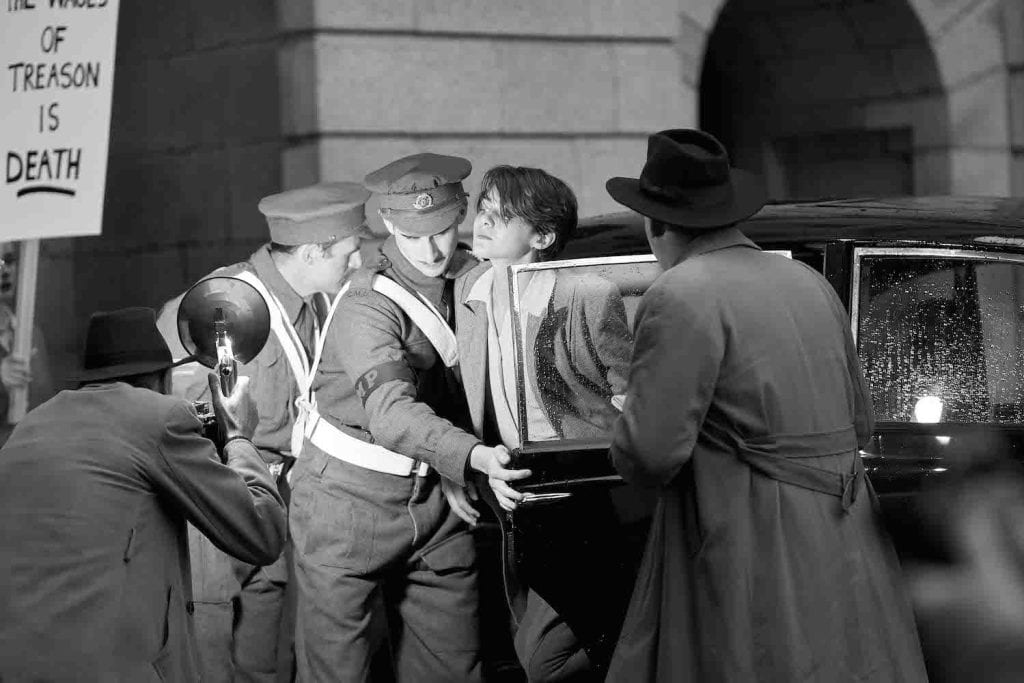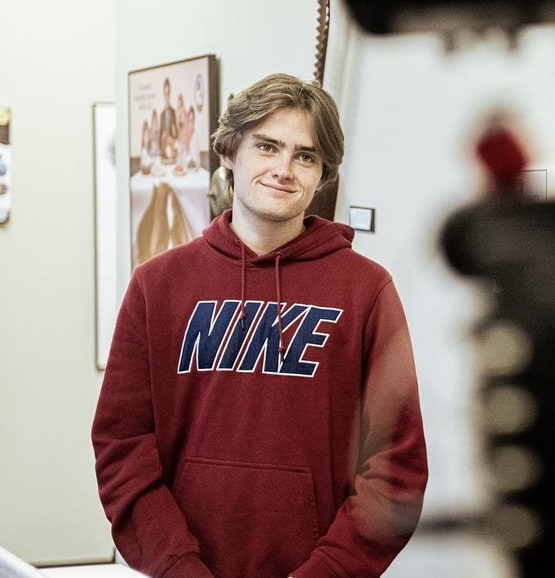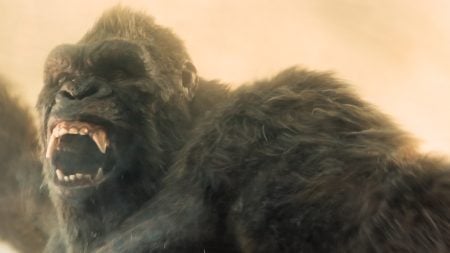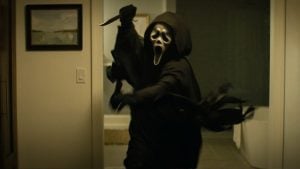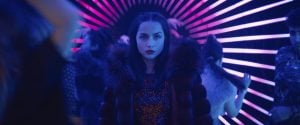Lola is a lavish achievement in a completely unique kind of filmmaking. The story follows two sisters who, during the time of the Second World War, build a machine that is able to access the future through radio waves. What was created as a pure expression of creativity and ingenuity is soon manipulated by power and conquest, throwing the siblings into a whirlwind of unfortunate discovery and unavoidable mistakes. It’s based on real people; their ability to see the future remains a mystery.
The blending of actual found footage and documentary-style camera-work is seamless; the wide breadth of this narrative and all its consequences demanded something especially unique, and director Andrew Legge delivers. The film is a stark reminder that some things are out of our hands, and that regardless, art will always be in them.

It’s about the importance of simple things like smiling and laughing, or being moved by a piece of music. These things define the true human experience, beyond any sort of business-driven triumph or “greater good” victory. Lola seems to suggest that we may have lost, or are losing, said things… but it also makes sure to note that it’s never too late to fight for them.
The way in which the film contrasts the destruction of the Second World War with that of familial conflict, each splintering in unison as the narrative drives on and folds over itself, is expert writing. The film occasionally gets ahead of itself, and the strained runtime (a swift 79 minutes) doesn’t come without consequence, but still the amount of development and pure happening that is managed within that span is nothing short of miraculous.

War is a touchy topic that must be handled with grace and precision in all art, of course, though film is particularly difficult simply because it is a visual medium. Lola manages to correctly capture the vast horror of the specific event at hand whilst also not really focusing on it at all, at least not visually. We spend very little time in the midst of battles; rather, we’re behind the scenes. Political discussions serve as conduits for moral quandaries and ominous hints to the horrors. Through this lens, the film grapples with a multitude of relevant themes, such as abuse of governmental power and the lack of empathy within those systems.
Where it really breaks through, though, is in its use of the clairvoyant mechanics at hand to pinpoint the potential pains of such technology, simultaneously warning against war as well as how fighting fire with fire only enlarges the flame. Scenes of fictional riots and marches are laid over songs created just for this film, ones that imagine a much darker future than the one we’re living in. Lola is a cautionary tale that immortalizes itself in tragedy, encapsulating the worries of millions and extrapolating to possibilities that seem so outlandish, yet appear here with frightening realism.

What’s even more impressive is all that was technically accomplished on the film’s shoestring budget. Despite the purposeful handheld quality, the film looks incredibly sharp. Cinematographer Oona Menges finds endless ways to manipulate the same rooms, hallways, and cabs to create a constantly fresh look. There are a few specific shots that are absolutely mind-blowing in their relation to the narrative, despite such a small scale and environment to work with.
In addition, the undeniable performances at hand can’t go unmentioned, either. Emma Appleton and Stefani Martini lead the film as the Hanbury sisters; inventors of the titular, future-reading machine. Their dynamic is painfully realistic, and evolves over the film until it’s nearly bursting through the screen by the climax. Rory-Fleck Byrne is brilliant beside them as a hopeful, lovesick soldier who earns a spot with the sisters early on due to his desire to separate himself from his demand-driven life under military command. The three make for a special trio of characters that grow a lifetime’s worth in one of the year’s shortest feature films. A true testament to both their acting and the strong screenplay.
It may not be all-encompassing or painstakingly perfect, but for what it is, Lola is unbelievably good. It’s a profound story that is sure to strike the hearts of many; a terribly relevant tale that, while set 80 years in the past, is destined to be told today. Watch this anywhere you can see it, and then watch it again, again, and again.
Lola is currently playing in select theaters and is available On Demand courtesy of Dark Sky Films.
[youtube https://www.youtube.com/watch?v=ZDtCwRQQPMc]
It may not be all-encompassing or painstakingly perfect, but for what it is, Lola is unbelievably good. It's a profound story that is sure to strike the hearts of many; a terribly relevant tale that, while set 80 years in the past, is destined to be told today. Watch this anywhere you can see it, and then watch it again, again, and again.
-
8.5
-
User Ratings (0 Votes)
0


